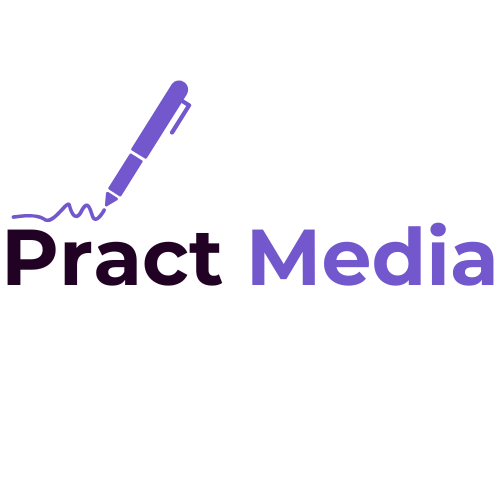What Are the Best Lead Generation Strategies?
What is Lead Generation?
Lead generation attracts and converts strangers and prospects into someone who has indicated an interest in your company’s product or service.
It’s a crucial component of any business’s growth strategy,
as the foundation for nurturing relationships with potential customers who could eventually purchase.
Importance of Lead Generation in Business Growth
Without an effective lead-generation strategy,
businesses might struggle to maintain a steady stream of potential customers,
ultimately leading to stagnant growth.
Lead generation helps businesses target the right audience,
drive brand awareness, and fuel the sales pipeline with quality prospects.
Overview of Lead Generation Strategies
Numerous strategies for generating leads cater to different types of businesses and industries.
These can range from content marketing and email campaigns to SEO and PPC advertising.
Understanding and implementing these strategies effectively can significantly impact a company’s ability to attract and retain customers.
Understanding the Basics of Lead Generation

Defining a Lead
A lead is any person who shows interest in a company’s product or service in some way,
shape, or form. The level of interest and engagement a lead has with a business can vary,
making it crucial to differentiate between types of leads.
Types of Leads: Marketing Qualified Leads (MQL) vs. Sales Qualified Leads (SQL)
Marketing Qualified Leads (MQL) have engaged with your marketing efforts but are not yet ready to purchase.
Sales Qualified Leads (SQL),
on the other hand, are those who have shown a more substantial interest and are further along in the buying process.
The Lead Generation Funnel
The lead generation funnel is a model that represents the stages a prospect goes through, from becoming aware of a product to making a purchase.
The funnel typically includes awareness, interest, decision,
and action stages, each requiring different strategies to guide leads toward conversion.
Content Marketing Strategies for Lead Generation

Blogging and SEO Optimization
Blogging is one of the most effective ways to drive organic traffic to your website and generate leads.
Creating valuable, SEO-optimized content can attract potential customers searching for information related to your industry.
Ebooks and Whitepapers
Offering in-depth resources like ebooks and whitepapers can be a powerful lead-generation tool.
These assets often require visitors to provide their contact information in exchange for the content,
making them excellent for capturing qualified leads.
Webinars and Online Courses
Webinars and online courses allow you to demonstrate your expertise while engaging directly with your audience.
By offering free or low-cost educational content,
you can attract leads who are interested in learning more about your offerings.
Email Marketing for Lead Generation
Building an Email List
Building an email list is essential for maintaining direct communication with your audience.
Use sign-up forms, pop-ups, and incentives to encourage website visitors to join your list.
Crafting Effective Lead Magnets
Lead magnets are incentives you offer in exchange for a visitor’s email address.
These can include ebooks, checklists, or discount codes.
The key is to provide value that aligns with your target audience’s needs.
Personalization and Segmentation
Personalizing email content and segmenting your list based on interests or behaviors can significantly increase engagement rates.
Tailor your messaging to address different audience segments’ specific needs and preferences.
Social Media Lead Generation Strategies
Utilizing Facebook Ads for Lead Generation
Facebook Ads offer robust targeting options,
allowing you to reach specific audiences based on demographics, interests, and behaviors.
Use lead generation ads to collect contact information directly within the platform.
LinkedIn Lead Generation Tactics
LinkedIn is a powerful platform for B2B lead generation.
Utilize features like LinkedIn Ads, Sponsored Content, and InMail to connect with decision-makers in your industry.
Instagram and Twitter for Engaging Leads
Instagram and Twitter can be effective platforms for engaging with your audience and generating leads.
Use hashtags, interactive posts, and direct messaging to connect with potential customers.
Search Engine Optimization (SEO) for Lead Generation
Importance of Keyword Research
Keyword research is the foundation of any successful SEO strategy.
Identify the terms your target audience is searching for and incorporate them into your content to improve your website’s visibility on search engines.

On-Page SEO Techniques
On-page SEO involves optimizing individual web pages to rank higher and earn more relevant traffic.
This includes optimizing title tags, meta descriptions, headers, and images.
Creating High-Quality Backlinks
Backlinks from reputable websites can significantly boost your SEO efforts.
Focus on creating high-quality, shareable content that others in your industry will want to link to.
Pay-Per-Click (PPC) Advertising
Google Ads for Lead Generation
Google Ads is a powerful tool for driving targeted traffic to your website.
By bidding on relevant keywords, you can position your ads before potential leads actively search for your products or services.
Remarketing Strategies
Remarketing allows you to reconnect with visitors who have previously interacted with your website.
By showing targeted ads to these users, you can encourage them to return and complete a conversion.
Optimizing Landing Pages for Higher Conversions
Your landing pages play a critical role in converting leads.
Ensure your pages are optimized with clear headlines, persuasive copy, and strong calls to action to maximize conversions.
Influencer Marketing
Collaborating with Influencers for Lead Generation
Influencers have established trust and credibility with their followers, making them valuable partners for lead generation.
Choose influencers whose audience aligns with your target market and collaborate on content that promotes your products or services.
Choosing the Right Influencers
Not all influencers are created equal. It is essential to choose influencers who genuinely connect with their audience and whose values align with your brand.
Measuring the ROI of Influencer Campaigns
Track key metrics like engagement, reach, and conversions to measure the success of your influencer marketing campaigns.
This data will help you determine the ROI and refine your strategies for future collaborations.
Referral Programs
Creating an Effective Referral Program
Referral programs encourage your existing customers to refer new leads to your business.
Offer incentives like discounts, freebies, or cash rewards to motivate referrals.
Incentivizing Referrals
Provide customers with shareable links, email templates, or social media posts to encourage them to refer others.
The more convenient it is to refer, the more likely they are to do so.
Tracking and Optimizing Referral Campaigns
Use tracking tools to monitor the success of your referral program. Analyze the data to identify what’s working and where improvements can be made.
Networking and Events
Hosting and Attending Webinars
Webinars provide a platform to share valuable information with your audience while generating leads.
Promote your webinars through various channels to attract a larger audience.
Participating in Trade Shows and Conferences
Trade shows and conferences offer opportunities to connect with potential leads face-to-face.
Make the most of these events by engaging with attendees,
collecting contact information, and following up afterward.
Leveraging Networking for B2B Lead Generation
Networking is essential for B2B lead generation.
Attend industry events, join professional groups, and actively participate in discussions to build relationships with potential leads.
Using AI and Chatbots for Lead Generation
AI-Powered Chatbots on Websites
AI-powered chatbots can engage with visitors on your website, answer their questions, and guide them through the sales funnel.
This automated interaction can help capture leads even outside of business hours.
Automating Responses and Lead Capture
Chatbots can be programmed to automatically respond to common inquiries and capture lead information, allowing your sales team to focus on more complex tasks.
Personalizing User Experience with AI
AI can analyze user behavior and preferences to deliver personalized experiences,
increasing the likelihood of conversion. Based on individual user data,
AI can recommend products, content, or offers.
Video Marketing for Lead Generation
Creating Engaging Video Content
Video content is highly engaging and can effectively capture the attention of your target audience.
Create videos that showcase your products, share customer testimonials,
or offer valuable tips and insights.
Utilizing YouTube and Other Platforms
YouTube is the second-largest search engine, making it a powerful platform for lead generation.
Optimize your video content for SEO and promote it across your social media channels to reach a wider audience.
Embedding Lead Capture Forms in Videos
Add lead capture forms directly into your videos to collect contact information from viewers.
This can be particularly effective when offering exclusive content or promotions.
Analyzing and Optimizing Lead Generation Efforts
Tracking Key Metrics
Monitor key metrics such as conversion rates, cost per lead, and return on investment (ROI) to evaluate the success of your lead generation strategies.
Use this data to make informed decisions about where to allocate resources.

A/B Testing Strategies
A/B testing involves experimenting with different elements of your lead generation strategies to see which performs better.
For example, you could test variations of your landing pages, email campaigns, and ads to optimize for higher conversions.
Continual Improvement of Lead Generation Tactics
Lead generation is an ongoing process that requires regular evaluation and adjustment.
To improve your results, continuously analyze your efforts, gather feedback, and implement changes.
Common Mistakes in Lead Generation and How to Avoid Them
Overlooking the Importance of Follow-Up
Failing to follow up with leads is a common mistake that can result in missed opportunities.
Implement a consistent follow-up process to stay top of mind and nurture leads through the sales funnel.
Focusing Too Much on Quantity Over Quality
While generating a high volume of leads is essential, quality should never be sacrificed.
Focus on attracting leads who are genuinely interested in your offerings and are more likely to convert.
Ignoring Data and Analytics
Data is essential for understanding the effectiveness of your lead-generation strategies.
Review your analytics regularly to identify trends, measure performance, and make data-driven decisions.
Conclusion
Recap of Effective Lead Generation Strategies
Lead generation is a multifaceted process that requires a combination of strategies to be successful.
Each approach, from content marketing and SEO to PPC and influencer collaborations,
plays a critical role in attracting and converting leads.
Final Thoughts on Implementing Strategies
Implementing the proper lead generation strategies can significantly impact your business’s growth.
To maximize your lead generation potential, it’s essential to evaluate and adjust your tactics continually based on performance data.
Call to Action
Now that you have a comprehensive understanding of the best lead-generation strategies,
it’s time to put them into action.
Start by assessing your current efforts and identifying areas for improvement. With the right approach,
you can drive more qualified leads to your business and ultimately increase revenue.
FAQs
What is the difference between inbound and outbound lead generation?
Inbound lead generation involves attracting leads through content and marketing efforts, such as SEO and social media. On the other hand,
outbound lead generation involves reaching out to potential customers directly through cold calling and email outreach.
How often should I update my lead generation strategies?
It’s essential to review and update your lead generation strategies regularly.
This could be quarterly or biannually, depending on your industry and market conditions. Staying agile and responsive to changes will help keep your strategies effective.
What are some low-budget lead-generation strategies?
Low-budget strategies include content marketing (like blogging and SEO), social media engagement, and email marketing.
These methods can be highly effective without requiring a significant financial investment.
How can I measure the success of my lead-generation efforts?
Success can be measured by tracking key metrics such as conversion rates, cost per lead, and overall ROI. Tools like Google Analytics and CRM systems can help you gather and analyze this data.
What tools can help automate lead generation?
Tools like HubSpot, Mailchimp, and Salesforce offer automation features that can streamline your lead-generation efforts.
These platforms can automate tasks such as email marketing, lead scoring, and CRM management.







